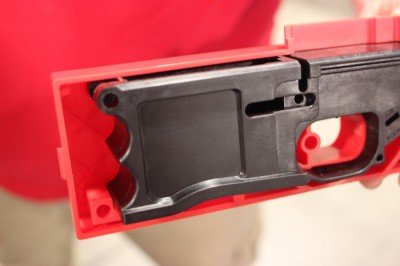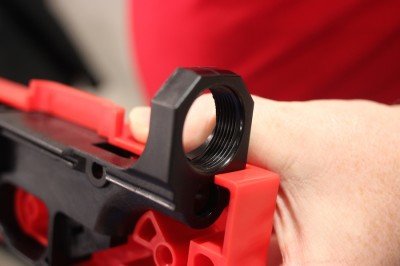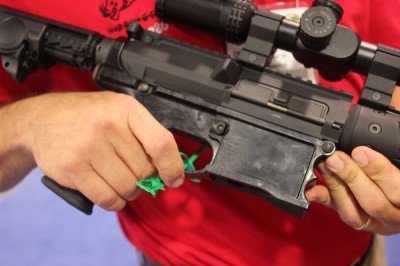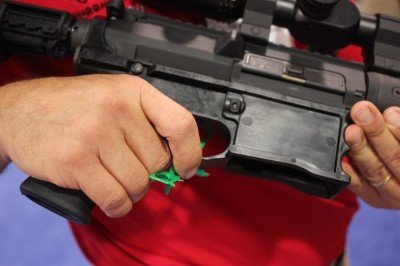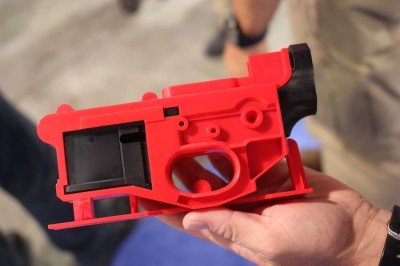So you want to get your hands dirty with some Do-It-Yourself gunsmithing? Try Polymer80. This may be the most efficient way to learn how your AR pattern rifle works. The lowers are classified as 80% complete, which means you don’t have to treat them as firearms. They can be shipped to your house. You don’t record their serial numbers on any 4473, or any other form. It is not yet a firearm.
With a little bit of elbow grease, and the help of a drillpress or milling machine, they can become viable firearms. Cutting them is easy enough. Polymer is much easier on tools than aluminum (which some 80% lowers are made of). After cutting pockets for a few of the internals, the new receivers can be fitted to AR uppers (which are also not considered firearms) to form working rifles.
Ploymer80 began with AR-15 blanks and has since expanded to include polymer .308 lowers. The ones we saw at SHOT Show look good. They come with detailed instructions, a drilling jig to help guide the process, and the black polymer lower blank.
My question about the use of polymer had more to do with the longevity of the material than the cutting process. The crew at Ploymer80 said they’d gotten great results from their polymer. Its elasticity allows it more flex than aluminum, which means it can take the abuse of recoil without developing stress cracks.
We’ll have on in house ASAP, and will chronicle the process. If you want to read up on our 5.56 Polymer80 lower, just get your clicker clicking.
[one_half]
[/one_half][one_half_last]
[/one_half_last]
[one_half]
[/one_half][one_half_last]
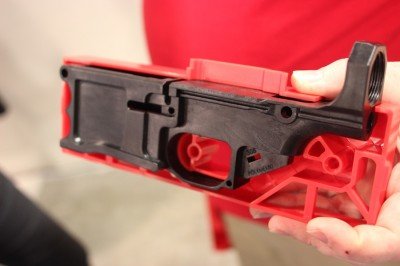
The polymer reacts better, we’re told, than some metals. It has more elasticity, and handles recoil energy without cracking.
[/one_half_last]
[one_half]
[/one_half][one_half_last]
[/one_half_last]
